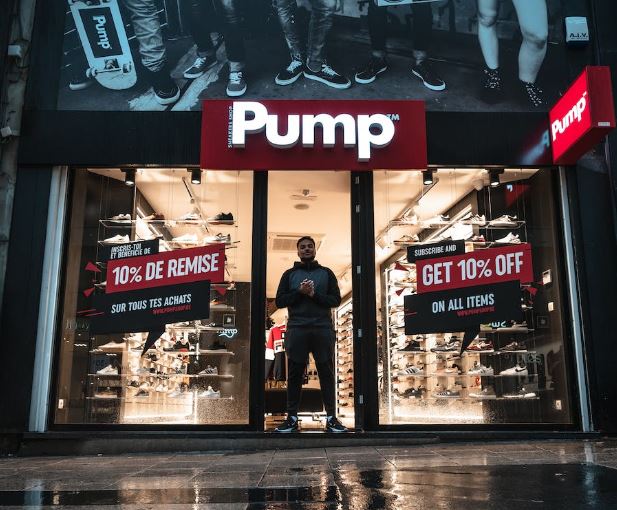
Source: Unsplash
In 2024, the allure of buying small businesses is heightened by a few more factors. First, the pandemic aftermath has led to numerous market gaps waiting to be filled – a prime opportunity for nimble small businesses.
Also, the rise of digital marketplaces has made it easier than ever to connect with potential customers worldwide. This global reach, previously a distant dream for small entities, now offers a level of scalability and growth potential that’s incredibly tempting.
Plus, with societal shifts towards supporting local and small-scale entrepreneurs, these businesses enjoy a growing, loyal customer base that values authenticity and personal touch.
Little-to-No Money Down? Really?…
Here comes the big question: How on earth can you buy a business without a fat wallet? This isn’t monopoly money we’re talking about. But guess what? There are ways. Creative financing, seller financing, partnerships, leveraging assets… the list goes on. It’s all about being smart and a bit savvy with finances, and it goes beyond just looking up SBA loan interest rates.
If you’re interested in acquiring a lucrative small business and are constrained with cash, here are some solutions to consider.
Seller Financing
Seller financing is pretty straightforward. The seller basically acts as the bank. You pay them over time, often with a down payment that’s way smaller than what a bank would demand. It’s a win-win: the seller gets to sell, and you don’t have to rob a bank to buy.
This, of course, is never as easy as it sounds, as sellers will still have a vested interest in the business, and will be unlikely to sell it to just any Joe who arrives at their door.
If you’re interested in a business and lack the cash to back it up, you will have to prove your worthiness, either with experience in the industry, or a strong personal net worth that gives confidence to the seller that you can indeed pay the full price, no matter how the business does.
Explore Partnerships
Don’t have the full amount? Find someone who does! Partnerships are all about pooling resources. You might have the industry knowledge, while your partner has the cash. Together, you can make it happen. Just make sure you’re on the same page and have everything in writing – nobody wants a partnership turning into a soap opera.
There are plenty of cash-rich investors who are interested in the lucrative, high-return world of small business investing. Yet, the lack of managerial skills, along with time and knowledge constraints mean that they will have to depend on a professional manager.
The thing about professional managers, it is always good to have one with skin in the game, which truly incentivizes them to maintain and grow the business.
Leveraging Assets
Also known as the private equity model, which involves buying up a business, and then leveraging it to the hilt to maximize cash on cash returns.
This is about using the business’s assets to secure financing. It could be inventory, equipment, or even the customer list. Banks love it when there’s something tangible on the line. You might still invest some money upfront, but this can be recovered fairly quickly, by borrowing on the business’ assets.
Such a model comes with its share of risks and drawbacks, the most significant of which is tying up future cash flows to service borrowings, along with the risk of defaults in the case of a downturn, or any instabilities.
Other Factors – It’s Not All About The Money
Financial wizardry can get you through the front gates, but small business success takes a lot more than just money.
Here are a few other things that experienced players in the small biz brokering and acquisition landscape wish they knew when they first got started.
Negotiation Skills: Your Secret Weapon
Negotiation isn’t just about haggling over a price. It’s about understanding the seller’s needs and crafting a deal that works for both. Maybe they’re looking for a quick exit, or they want to ensure their legacy continues. Figure that out, and you’re golden.
Due Diligence: Don’t Buy a Lemon
Just because you’re not breaking the bank doesn’t mean you should skip the homework. Due diligence is crucial.
You need to know exactly what you’re getting into – the financials, the market, the potential. It’s like checking a used car before buying; you don’t want it falling apart as soon as you drive off.
The Human Factor: Relationships Matter
In the end, business is about people. Building relationships – with sellers, partners, and financiers – can open doors you didn’t even know existed. People invest in people, so make sure you’re someone worth investing in.
The Exit Strategy: Always Have a Plan B
Always, and I mean always, have an exit strategy. Things might not go as planned, and that’s okay. Having a plan B (or C, or D…) keeps you from being stuck in a sinking ship.
Final Words
So there you have it, a deep dive into buying small businesses in 2024 with minimal upfront investment. It’s a blend of financial creativity, strategic partnerships, and a whole lot of guts.





















